- News
- Reviews
- Bikes
- Accessories
- Accessories - misc
- Computer mounts
- Bags
- Bar ends
- Bike bags & cases
- Bottle cages
- Bottles
- Cameras
- Car racks
- Child seats
- Computers
- Glasses
- GPS units
- Helmets
- Lights - front
- Lights - rear
- Lights - sets
- Locks
- Mirrors
- Mudguards
- Racks
- Pumps & CO2 inflators
- Puncture kits
- Reflectives
- Smart watches
- Stands and racks
- Trailers
- Clothing
- Components
- Bar tape & grips
- Bottom brackets
- Brake & gear cables
- Brake & STI levers
- Brake pads & spares
- Brakes
- Cassettes & freewheels
- Chains
- Chainsets & chainrings
- Derailleurs - front
- Derailleurs - rear
- Forks
- Gear levers & shifters
- Groupsets
- Handlebars & extensions
- Headsets
- Hubs
- Inner tubes
- Pedals
- Quick releases & skewers
- Saddles
- Seatposts
- Stems
- Wheels
- Tyres
- Health, fitness and nutrition
- Tools and workshop
- Miscellaneous
- Buyers Guides
- Features
- Forum
- Recommends
- Podcast
feature
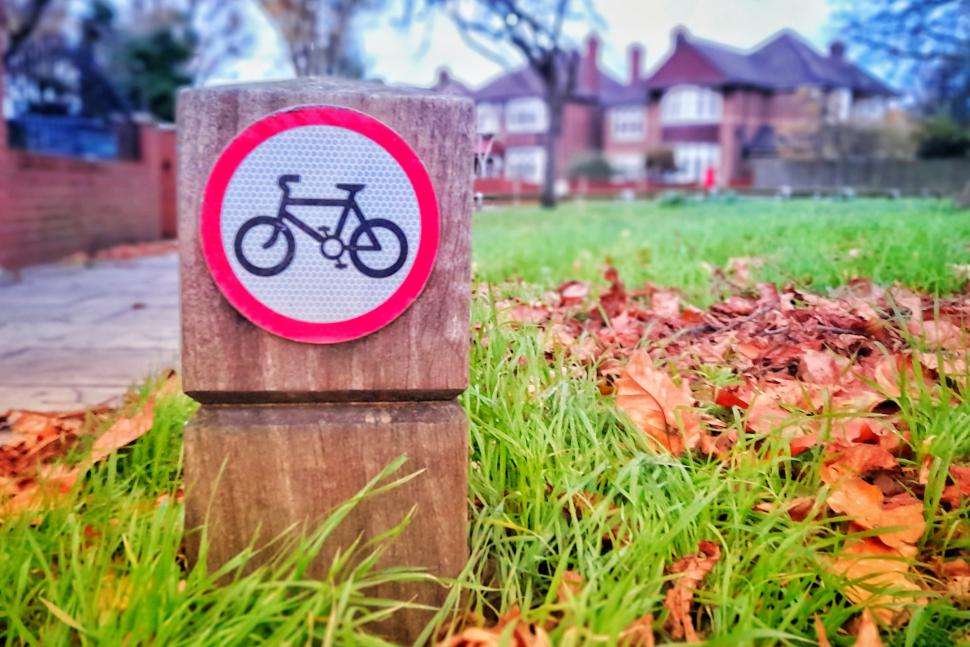 No cycling (copyright Simon MacMichael)
No cycling (copyright Simon MacMichael)No winking at women, no cycling in swimming pools — Crazy cycling laws from around the world
Looked at from outside the UK, it may seem bizarre that we have a 19th Century law here, nowadays most usually used against cyclists, that prohibits “wanton or furious driving” (under the Offences Against the Person Act 1861). While reform of the legislation to bring it into the 21st Century has long been promised by the government, there’s little sign of that happening just yet. Other countries though have their own laws regarding cycling that viewed from here, seem equally strange. Here's a selection of some weird and wonderful ones that we've found.
> Is there anywhere cyclists are required to be licensed?
Can you ride tandem? Well you couldn’t in Tokyo – until now
From July 2023, tandem bicycles are now legal across Japan, with the scrapping of a law that prohibited them from the streets of Tokyo, the last place in the country where they had been banned.
Campaigners have hailed the move as enabling blind and partially-sighted people, as well as those with various other disabilities and some elderly people, to be able to enjoy cycling.
Riding while drunk in Germany can lead to driving ban
While it is, quite sensibly an offence in the UK to ride a bicycle while under the influence of alcohol, police officers cannot force a cyclist to undergo a breathalyser test – and because the lack of a test result may make successful prosecution tricky, a charge of careless or reckless cycling may follow instead.
Moreover, since it is not considered a driving offence, even if a conviction for drunk cycling did result, it would not lead to penalty points on a licence or even disqualification from driving.
We are certainly not saying that is crazy to have laws against riding a bike after a few drinks, but some of the punishments in other countries for doing so do seem a bit extreme, as you will see below.
Drunk cyclist in Germany gets 15-year ban from driving…
Not so in Germany, however, where people riding bicycles are subject to the same traffic laws as everyone else, including those related to drink-driving, and they can lose their driving licence, should they hold one.
One young man, riding his bike home from a student party back in 2009, didn’t have a driving licence, but was three times over the limit – and found himself banned from cycling, skateboard, or any other licence-free vehicle for the following 15 years … just another 12 months or so to go, then.
Curiously, the law does allow him to ride a horse – though given that the protagonist here, nowadays no doubt older and wiser and probably fed up of explaining to people why he doesn’t drive a car or ride a bike, is allergic to horse hair, that’s probably not much use to him.
… but across the border in Poland, he could have been jailed
But don’t even think of riding a bike in Poland while drunk – also back in 2009, the country’s constitutional court ruled that cyclists convicted of riding while drunk should be treated the same way as intoxicated drivers, and they should be fined or imprisoned, with the latter the most common course of action, and offenders on average being put away for more than 11 years.
Sans-culottes – Paris’s long-standing ban on women in trousers, unless in the saddle
Paris, undoubtedly, is one of the world’s fashion capitals – making it all the more bizarre that from 1799 until just ten years ago, there was a law forbidding women from wearing trousers, initially enacted during the revolutionary period since presumably you couldn't have women in culottes showing solidarity with those lacking said garments – although if you visited the city a decade or more ago, you’d never have known that such a law was in force in the first place.
There was however one exception, made in 1909, and which permitted women to wear trousers if they were riding a horse or a bike, all in the interests of decorum, naturally, although it doesn’t seem to have actually been compulsory to do so.
No winking at women … and no moustaches
While laws in many countries are set nationally or perhaps regionally, in the United States, besides federal and statewide legislation, there is a plethora of local ordinances in force, often at town or city level, that provide us with some of the more bizarre examples of legislation governing behaviour on bikes.
Much of the law that made it onto the statute books (and which in many cases has since been repealed) regulated what women were permitted or forbidden to do on a bike, while other legislation dealt with the relationship between the sexes when it came to bike rides.
For example, the town of Newport, Vermont in the north east of the country, permitted married women to go for a bike ride alone on a Sunday, while married men were not allowed to do so (whether a married couple could go out on a ride together, on a bicycle made for two, for instance, is unknown).
A Sunday cycling ban in Ogallala, Vermont, meanwhile, meant that women who were unmarried, widowed, or divorced, were breaking the law if they were found cycling on the Lord’s Day (in passing, we should mention that male or female, reading a newspaper while riding a bike – a rather singular skill, one would have thought – was banned in Woodbridge, Virginia on Sundays during times when church services were being held.
As far as interaction between the sexes is concerned, men in Ottumwa, Iowa, risked falling foul of the law if they winked at a woman while riding a bike, while in Oklahoma, the town of Lugert had a law preventing men sporting a moustache from going for a bike ride with a woman.
No cycling in swimming pools
Baldwin Park, California, regularly makes lists of bizarre cycling laws through a local ordinance that bans people from riding bikes in swimming pools – often prompting the observation of why on earth someone would want to get their bike, and themselves, wet?
In fact, there’s logic to the local legislation, and it dates back to the skateboarding and BMX boom of the late 70s when during the cooler months, kids would sneak into properties and use empty swimming pools to perform tricks (the city itself went on to build them a skate park).
Do Missouri cyclists really have to fit a 15-foot flagpole on their bikes?
Finally from the US, a bit of urban myth-busting. Back in 2016, a member of Missouri’s state legislature tabled a bill proposing that all cyclists riding on a “letter country road” – the US equivalent of B roads in the UK – should have to fly an orange flag from, get this, a 15-foot pole attached to their bike.
In response, one St Louis bike shop even rigged up a bike to highlight the ridiculousness of what was being proposed by then Representative Jay Houghton (who, it goes without saying was a Republican), as shown in the Twitter post below.
@cyclelicious -- the folks @StlBicycleWorks made a 15' pole today to show ridiculousness of MO bill. pic.twitter.com/FAjeCB0XvV
— Carrie Z (@velo_city) January 13, 2016
The bill, unsurprisingly, didn’t make it onto the statute books – but that hasn’t stopped the crackpot idea regularly featuring on lists of weird cycling laws since the idea was first floated.
Saudi Arabia relaxes ban on women cycling … slightly
The part the bike played in enabling women in western countries to assert their independence in the the late 19th and early 20th centuries in western countries is well-known, and in recent years we have also seen women in Middle Eastern countries including Iran take to the saddle – and social media – in defiance of the country’s ban on them riding bikes as a way of asserting their independence.
In Saudi Arabia, a total ban on women cycling was partially reversed as recently as 2013 but with strict conditions imposed – it is only permitted in recreational areas, under the supervision of a male relative, and riding must be done while wearing Islamic dress.
The country may be engaged in a sportswashing offensive right now, ranging from golf to football, but we’re not sure we’re going to see a women’s version of the Saudi Tour any time soon.
No topless riding in Thailand
On the subject of what not to wear (or rather, not wear), it may get humid in summer in Thailand, but forget riding a bike around without a t-shirt on if you want to avoid a fine, albeit one that for a western tourist is unlikely to trouble the bank balance too much, clocking in at under a fiver.
The law presumably was brought in as a response to tourists riding from the beach to the bar in a state of semi-undress, and as to what is acceptable as clothing on your upper body goes … well, the King of Thailand has been spotted in the past pedalling while wearing a rather fetching crop-top.
Mind you, he’s the King, so maybe that’s not a precedent to argue over with the Thai police if you get pulled over while riding with a skimpy top on, plus he was in Switzerland, not Thailand, at the time.
Great Britain: Bikes don’t have to have a bell, but cannot be sold without one (and your clipless pedals are felonious)
And finally, we’re back home for a couple of rules and regulations that may seem strange to people beyond these shores.
Since 1999, there has been no legal requirement for cyclists in Great Britain to have a bike bell fitted – although whether it’s a budget bike from a big box store or a sleek racing machine from a high-end dealer, the Pedal Bicycles (Safety) Regulations 2010 is that one has to be fitted when it is sold, and often the first bit of fettling a new bike is having the bell removed.
We mention Great Britain specifically because the rule applies to England, Scotland and Wales only – in Northern Ireland, which has its own version of the Highway Code, cyclists “MUST ensure a working bell or horn is fitted.”
It's also worth noting that legally, all bikes sold in Great Britain must be sold with wheel reflectors and "a red wide-angle rear reflector and amber reflectors front and rear on each pedal", and technically you have to have the pedal reflectors fitted outside of daylight hours - which may seem a little pointless now that you can pick up positively blinding rear bike lights for about twenty quid.
So indeed, if you've recently moved here and happen to spend several thousand pounds on a shiny new road racing bike, it's completely normal for the shop to throw in some of the very cheapest reflector-shod pedals and a bell with your purchase. It would have to be a particularly vindictive police officer to pursue the bike shop if they forgot, and it's rather unlikely you'll be penalised for not having pedal reflectors at night if you're running a decent set of lights.
Back to bells, and to a country that never seems to miss an opportunity to hit cyclists with stonking fines (most usually for riding without a helmet), riding your bike without a bell in Australia will land you a hefty fine – up to A$2,200 if you decide to challenge it in court.
Are you aware of any other bizarre pieces of bike-related legislation that you think deserve a place on our list? Let us know in the comments below…
Simon joined road.cc as news editor in 2009 and is now the site’s community editor, acting as a link between the team producing the content and our readers. A law and languages graduate, published translator and former retail analyst, he has reported on issues as diverse as cycling-related court cases, anti-doping investigations, the latest developments in the bike industry and the sport’s biggest races. Now back in London full-time after 15 years living in Oxford and Cambridge, he loves cycling along the Thames but misses having his former riding buddy, Elodie the miniature schnauzer, in the basket in front of him.
Latest Comments
- hawkinspeter 35 min 8 sec ago
When I read "Oracle on Windows", I threw up in my mouth a little
- David9694 42 min 16 sec ago
Nearly 600 red light jumpers caught on camera 'think rules don't apply to them...
- David9694 50 min 58 sec ago
Car smashes into historic West Country pub...
- eburtthebike 1 hour 6 sec ago
A cycle route would definitely improve that green space.
- David9694 1 hour 13 min ago
Here's a grab from the seat post video. Doesn't look like they've used a lubricant? Where can I get that clamping plate?? ...
- Sredlums 10 hours 3 min ago
That bike hack… I admit it looks nifty, but I completely fail to see what the buzz is about. Why waste a ziptie for for something you can simply do...
- john_smith 10 hours 32 min ago
Don't give then ideas. "You lot don't even pay road tax!! And your bikes haven't even got an MOT!!"
- S.E. 12 hours 32 min ago
Are you sure they are not filming a sequel? Maybe this is part of the teaser...
- Mr Hoopdriver 12 hours 52 min ago
You missed Rule 67, point 2 :-...
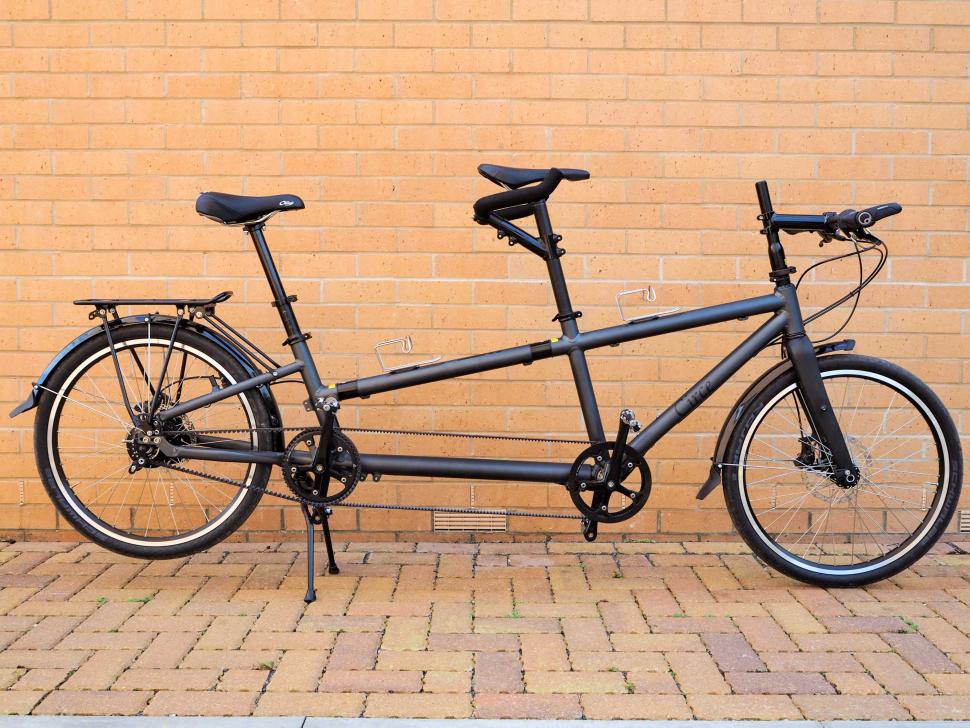
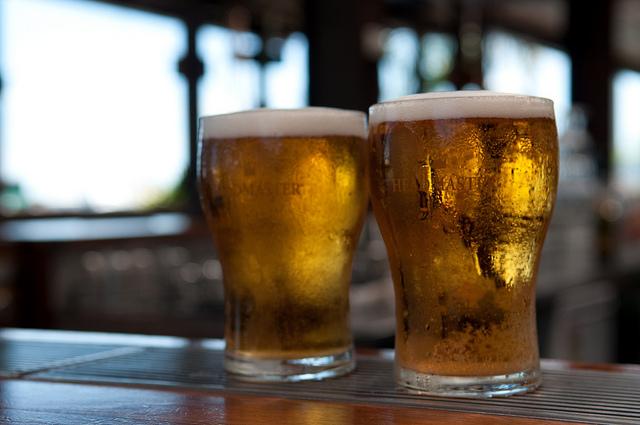
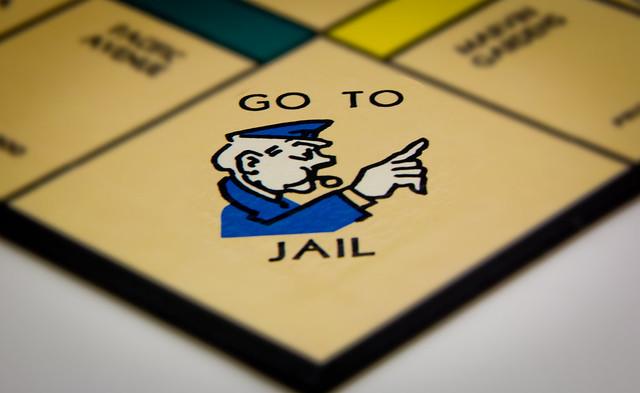
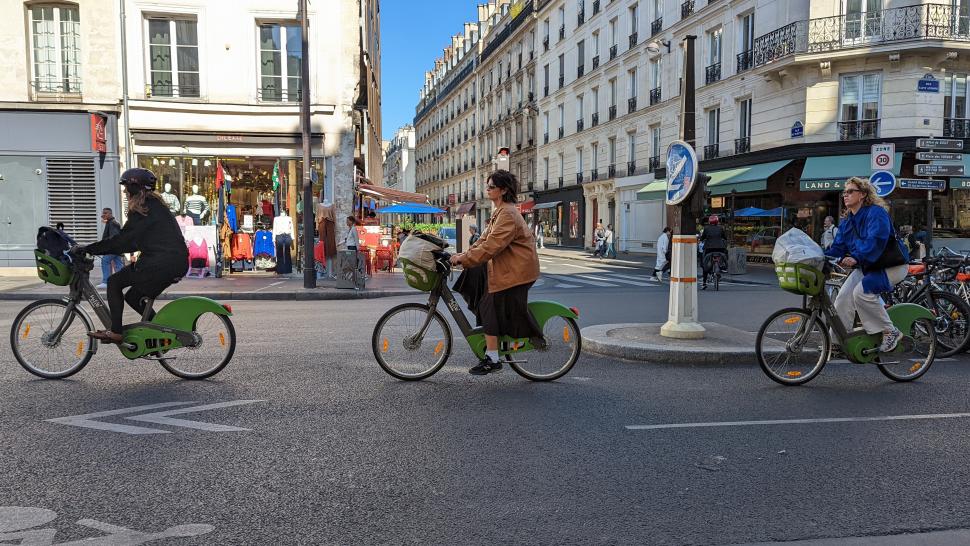



Add new comment
43 comments
He was being driven, under blue lights and sirens, to an emergency call when someone else jumped the traffic lights straight in front of his big red truck. Sometimes you have to drive! A bucket of water on a sit up and beg wasn't going to cut the mustard here.
Good point - which is why I think the "sustainable safety" approach is something we should look at. (Putting safety *above* capacity - and moving focus from *maximum motor traffic capacity*. Having a greater recognition that humans en-mass will not follow rules / do stupid things - but that that is predictable).
I suspect that there are other people who are driving apart from the emergency services. In fact, I think it's quite a common activity. There's a continuum here again isn't there? Life and death, "essential", I need to, I want to.... another reason for trying to shift travel away from motor vehicles.
Which might have helped the impatient red-light-jumper in your case - and then spared everyone else affected by that event.
I do agree, but I think drunk cycling is way down the list of priorities when dealing with road traffic especially when you consider that it's a self-limiting acitivity - people don't enjoy falling off bikes.
It's remarkable how much RTCs have been normalised by society and media and how rarely incidents even reach the news, despite the heavy cost paid by society.
They only tend to make the news if they are causing significant traffic delays...
...or if it impacts the wealthy
Two different issues and in my opinion it isn't a case of solving one or the other, we should be sorting both.
The fact is that alcohol inhibits the decision making skills required to be safe on the roads well before you reach the point of falling off.
I read somewhere that it takes ten minutes for alcohol to start affecting your judgement. I remember having a discussion with someone who assured me that he was more than able to drive after two pints (his limit when driving) and couldn't accept that his judgment was going to be stuffed.
Though technically you can still be charged for being in charge of a carriage while on the highway under the influence if you end up with an officious constable. I know of a few folk who have been charged for being in possession of their car keys even though they had every intention of walking home. All they did was open their boot to get a jacket out. One landlord I knew had a jar where you ditched your keys to be safe.
A friend of a friend (yes I know so many stories start like that but I did meet this guy) who had had one too many decided to sleep it off for the night in his car; he had heard all the stories of how you can be drunk in charge simply by being in your car and in possession of the keys, so he pushed the keys into the exhaust pipe and settled down on the back seat...a passing patrol saw him doing this and proceeded to pinch him. He was eventually left off the next morning with a warning, but really, a bit overzealous…
You want to be careful with that, they can be a bit tricky to get back. I've only tried once though...
Hope they gave him a breakfast for his trouble. We used to have a drunk in our village who would totter home. The police would lift him. Put him in a cell. Give him breakfast and a warning in the morning.
Blah blah blah
I'm still cycling to the pub.
Which one assumes means you'll ride home pissed, thereby breaking the law and putting your life and the safety of others in danger. Way to go, big man, ain't you the dog?
Pages